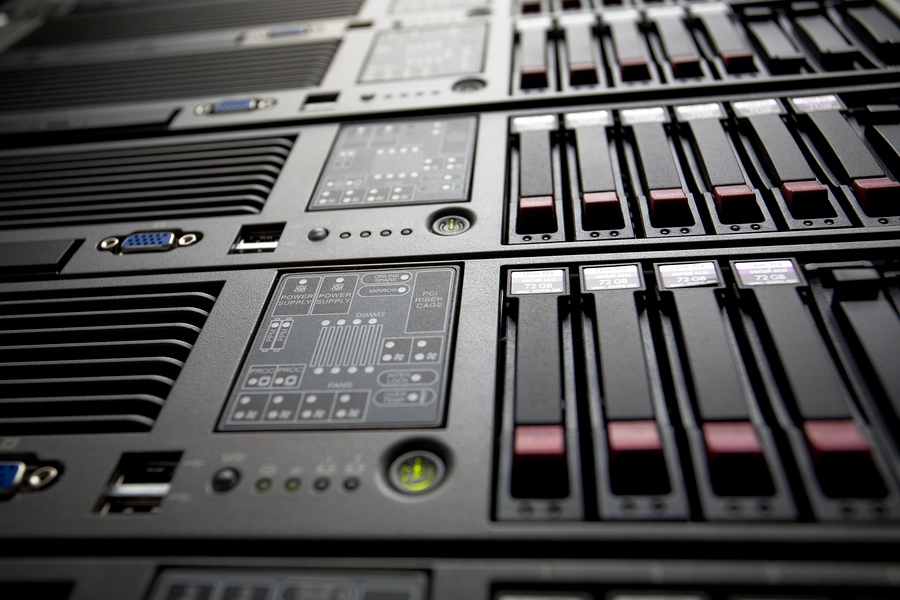Archive for the ‘web hosting’ tag
Top 6 Web Hosting Problems and How to Avoid Them no comments

Long gone are the days when someone had to make a well-thought-out plan to make and launch a website. It is in the past now. Today, anyone can buy a domain name, choose a web hosting provider, and set up their website by choosing from hundreds of website designs and themes readily available. Although there is no need to spoil the mood, especially when you are excited, you can still face problems when choosing the right web hosting service provider.
Before starting, it is important to see what problems you can face if you choose the wrong or less-known web hosting provider and what problems you may face. Here, we outline some web hosting problems and how to avoid them.
1. Slow Website Speed
Speed is the key factor. After all, you wouldn’t expect users to wait to load pages. If the website is slow, a user will vanish in the blink of an eye. Moreover, if your website grows in traffic over time and the website is still slow, it will complicate the matter. According to the study, the standard website loading time should be between 0-4 seconds. If your website takes longer than that, you are leaving a bad impression on the user.
To avoid the problem, choose a web hosting service provider in a nearby region. If you plan to set up your website in America, then ideally, the web hosting provider should be from America rather than Asia. Sometimes, web hosting servers are in limited locations, which should be a red flag. Always opt for the service having multiple server locations around the globe. Also, make sure that the web hosting provider is using high performance, enterprise grade servers, optimized for website speed.
2. Downtime
When the website is set up, you can face downtimes. Downtime means your website going out of order and displaying error messages to the user. Again, it leaves a bad impression since the website is not responsible for it directly. It happens due to server issues or ongoing maintenance at the web hosting provider’s end. Frequent downtimes may lead to less traffic and lower ranking in search engines.
To avoid this issue, always choose a web hosting service that provides high uptime and regular monitoring of the website. You can ensure that by looking for a web hosting solution that provides a backup plan during downtime. Regularly update the website software and plugins to avoid security issues. Always optimize the website by installing just one theme and fewer plugins so you don’t face any issues in case of server overload.
3. Web Hosting plans
There are many web hosting plans for each service provider. Some providers do not disclose the limitations of their web hosting plans. Make sure to choose a web hosting plan that provides a 100% uptime guarantee for your website. Moreover, as your website grows and tracks more traffic, you need a high-tier hosting plan so that you can have more resources and features for your website.
Web hosting plans start at different points, so always choose as per your need and budget. Make sure that your web hosting service provider also offers scalability options. Also, it should be flexible as well when you need to downgrade your plan. Many web hosting services just provide an annual plan, and if you need a monthly plan just in case to see how things work out, you might want to look somewhere else where a monthly subscription option is also provided.
4. Security
Many web hosting companies just sell hosting solutions without being able to provide high-grade security options. A lack of security means your website will be vulnerable to getting hacks and possibly data theft, and your sensitive data will be compromised.
A suitable web hosting provider will provide SSL certificates, firewalls, malware scanning, and DDoS protection. Some services provide SSL certificates, which provide encryption and authentication for data transfer in a plan, and some charge extra. Malware attacks are common, especially on websites with low domain authority, so always look up a service that protects against malware attacks. Also, regular backups are important in case of some security breach, and you can restore your website to a previous backup state. Security for a website is essential as it provides peace of mind, especially when running an eCommerce store online.
5. Bandwidth
When choosing a web hosting service, consider the bandwidth offered by the provider. Bandwidth is necessary to ensure that a website can handle high volumes of traffic without experiencing slow loading times, downtime, or suspension. A website needs to have a hosting plan that provides sufficient bandwidth to ensure a fast and reliable user experience. Many web hosting providers now provide unmetered or unlimited bandwidth options.
6. Customer Support
Reliable customer support is important as you may encounter technical issues or need assistance with web hosting service. Many web hosting service claims to provide 24/7 assistance through chat, email or even calling.
You can always check the claimed reliability by inquiring about buying a service. If customer service is prompt rather than just a bot chat, then it’s a good option to go for. Alternatively, you can always check reviews and ratings of pre-existing customers for a better idea.
Conclusion
Although it’s easier to set up a website, always consider factors such as website speed, downtime, web hosting plans, security, bandwidth, and customer support before making a final decision. By following the tips and solutions provided, you can avoid common web hosting problems and ensure that your website runs smoothly and securely. Always prioritize the needs of your website and choose a web hosting service that meets those needs within your budget.
Follow Us :Share :
Dedicated Servers You Can Choose in 2023 no comments

What are dedicated servers
Dedicated Servers (also known as Bare Metal Servers) offer the highest level of service with the ultimate combination of performance, value, and security for your cloud-based hosting needs. Unlike cloud or virtual servers, a dedicated server provides you or your business with exclusive access to all the physical hardware in the server.
Dedicated servers are typically more powerful and reliable than shared servers, which are used by many different customers. They are also far more flexible than other hosting options, giving your organization full control over the security settings, choice of operating system, hardware configuration, and what applications you want to run on the server.
Dedicated servers can be used for a variety of purposes, including hosting websites, running software applications, and storing/managing data.
Application of dedicated servers
There are many practical applications for dedicated servers as their serving of a single network makes them an easy solution to employ. Some of the applications include the following:
• Hosting websites
Dedicated servers are commonly used to host websites, as they provide the necessary resources and stability to handle high traffic. If a website is being hosted on a shared server, then the website may face some performance issues, hence dedicated servers are a better alternative to them.
• Software applications
Dedicated servers can run software applications that require a high level of performance and reliability, such as databases, email servers, and other business-critical applications. For example, big corporations, companies, and hand hospitals have software solutions that require a dedicated server for handling all the related data.
• Gaming
Dedicated servers are used for hosting online gaming competitions. When a large number of players are participating, it requires a server to host a big amount of data.
• Data storage and backup
Dedicated servers can be used to store and manage large amounts of data, and to create backups to protect against data loss. It makes them a handy tool for small organizations.
• Streaming
Dedicated servers can be used to stream video and audio content, such as live events, to large audiences. For example, Netflix and Disney+ have their large-scale dedicated servers to host the data being consumed in large amounts.
• Cloud computing
Dedicated servers can be used to create a private cloud infrastructure for businesses, providing a high level of control over the data and applications being run. Many medium to large-scale corporations use cloud computing solutions so they opt for dedicated servers.
• Machine learning
Dedicated servers can be used to power machine learning workloads, as they provide the necessary resources being fed all the time to train and run complex models.
• IoT
Dedicated servers can be used to process and store data from IoT (Internet of Things) devices such as sensors and cameras and handle communication between devices.
• Virtualization
Dedicated servers can host multiple virtual machines with different operating systems and software, allowing different users to share the same server resources. This is particularly helpful in big offices where employees use different operating systems on their machines.
• E-commerce
Dedicated servers can be used to run e-commerce platforms that handle high traffic and require a high level of security and performance. E-commerce giants Such as Amazon, Alibaba, BestBuy, Shopify, and many others run on dedicated servers.
Factors to consider for choosing dedicated servers
The choice of a dedicated server should be driven by the needs of your business. Although dedicated servers come in a different number of cores and clock speeds, you can choose the number of cores as per requirement. More cores and higher clock speeds, although costs more, will provide more processing power for running high-end tasks such as databases, hosting websites, and running applications.
The RAM factor on dedicated servers is configurable. More RAM will allow for more applications to run concurrently and smoothly. Consider the type and speed of the network connections available on the server. A faster connection will improve performance, especially for tasks such as hosting websites and running applications.
The scalability option is the best solution for whichever dedicated server you choose for your business. A dedicated server that can be easily scaled up or down as per business requirements will be more flexible and cost-effective in the long term.
Enterprise Series Dedicated Servers
TurnKey Internet’s Enterprise Series is a line of enterprise-grade Dell PowerEdge R650xs bare metal servers. The servers are designed for businesses of all sizes and are used for a wide range of applications, including data centers, cloud computing, and high-performance computing. Enterprise Series servers feature the latest 3rd Gen Intel Xeon Scalable Processors, allowing your businesses to easily scale up or down as the needs change.
Enterprise Series servers can be configured with 2 Intel Xeon CPUs and large amounts of memory, allowing them to handle the most demanding workloads. They include a 10 Gigabit Ethernet (10Gbps) network connection and feature a variety of management tools, which allows for easy monitoring, updating, and troubleshooting of the servers.
The Best cPanel Dedicated Server
The Best cPanel Dedicated Server from TurnKey Internet provides the perfect combination of security, performance, features, and cost for the ultimate cPanel Web Hosting Server. This package is perfect for any sized business to host their own website, manage a portfolio of websites, or even resell websites for others as a Reseller or Marketing Agency.
This package offers a complete all-inclusive fully managed service including software licensing for cPanel/WHM, enterprise-grade server backups, and the premium high capacity DEDICATED server with RAID and SSD ultra fast disks.
Conclusion
If you are still unsure which configuration to choose for your business needs, TurKey Internet can help you as we offer many configurations and can provide guidance. To view all of our Dedicated Server options click here, or contact us today to speak with one of our experts!
Follow Us :Share :
A Beginner’s Guide to Choosing the Right Web Hosting Solution no comments

Businesses are converting their IT infrastructure into the cloud every day – phone systems, virtual desktops, and office servers. But when your business makes that transition to The Cloud why do you need so many options that look similar but have different names like “Cloud Hosting” or “Virtual Servers”? Which type is best for you– and what’s in between?
The Cloud
“The Cloud” is one of the most popular terms on today’s internet but lacks an agreed-upon universal definition. The cloud offers scalability and reliability at a low cost; it can be accessed from anywhere with an internet connection via various technologies such as Voice over Internet Protocol (VoIP) telephone calls or video conferencing applications which use WebRTC.
Virtual Servers
Virtual servers are an efficient and cost-effective way to provide your company with the necessary computing resources. A single high-capacity server in a data center can host 10 or more virtual private servers, such that each client has privacy protections while still sharing certain amenities like customizable operating systems and software applications across all accounts on a said device–this model provides greater manageability as well!
Dedicated Servers
When you need the most power for your application, there’s no better way than with a dedicated server. This one-of-” kind” service offers all its benefits and more – like increased privacy (you won’t be sharing resources), and custom software designed just for YOU! With less traffic on an idle system thanks to low electricity consumption at night when systems aren’t being used; it will ultimately save money over time due in part to not having as many employees utilize expensive licenses across 3 regions each needing their copy–the savings add up fast
Cloud Hosting
Cloud Hosting can mean just about any type of hosted solution in a secure data center. The more advanced Cloud Hosted solutions providers are offering a robust scalable network of servers that can provide redundancy and scalability that otherwise is not present in a single virtual server or dedicated server. You must be careful when you shop for vendors who use the term “Cloud Hosting” to promote using the Cloud to host your application or server. What you generally want is a cloud hosting solution that offers you a ‘virtual machine’ in the cloud provider’s network, that offers some level of scalability, and redundancy.
TurnKey’s offering
TurnKey Cloud offers a full virtual machine on top of multiple redundant clusters of servers which provides the cloud benefits of scalability and redundancy to let you install any operating system and any applications without having to utilize software developers to convert their applications to a proprietary cloud platform. If it runs on the server in your office, it will run in the TurnKey Cloud platform.
Follow Us :Share :
When is it Time to Upgrade to a Dedicated Server? no comments

For many clients just starting out with a website or a new business, a Shared Hosting solution or Virtual Private Server (VPS) is often enough to get off the ground. But, for many there comes a point when these solutions just aren’t enough.
The most obvious sign that it’s time for an upgrade is when your website has started regularly requiring more bandwidth or power than your current plan provides. Sure, this is kind of a no-brainer, but it’s a good idea to upgrade before you start running into trouble. If your site starts topping out the charts, it could temporarily go offline and that’s not good for business. Often we will see clients’ websites explode all of a sudden because they ran a special promotion or got some good press, and we will always work with them to make the transition to a dedicated server as seamless as possible. But, if you start seeing things getting busy, you can avoid a stressful situation with a preventative upgrade.
Another time an upgrade is a good idea is when a web application transitions out of beta or the development stage. While you’re working the bugs out of your application, a VPS can work fine. With just a few developers and beta testers in the system, a dedicated server would probably be overkill anyway. Once you release your application to the public, however, you’ll want to make sure you plan for the inevitable boom in traffic. Nobody wants their newly released project going down right out of the gate!
Regardless of the content of your website, if you’re worried about stability, dedicated servers are always the safest bet. Below you will find a summary of all the benefits a dedicated server provides (and how TurnKey Internet maximizes those benefits for our customers):
- Speed and Performance: Server and network response times in a shared hosting environment depend highly on the activity of others with whom you share space and resources. With a dedicated server you have significantly faster response and page load times because all the systems resources (such as CPU, disk, RAM and network bandwidth) are controlled and utilized solely by the applications on your server.
- Reliability: With a dedicated hosting environment, you have unlimited access to the operating system, server resources and software applications. This gives you a reliable way to manage the needs of your website and database system: it’s all there when you need it. If a neighbor causes a problem by over using resources, it will not impact your website or your business.
- Security: Dedicated servers provide better security than any other form of hosting since you are the only one with the root “administrative” access to your resources (disk, CPU, RAM, etc.) and can configure customized security policies server-wide such as firewall protection, user-level permissions and even restrict the types of applications that run on the server. With other forms of hosting, such as shared hosting, the neighbors you share space with could jeopardize the security of your web and database systems.
- Customization and Flexibility: Dedicated Servers offer unlimited customization and flexibility to meet your hosting application needs. You have access to fine tune and optimize all aspects of the server such as custom versions of Apache, PHP, MySQL, Perl/CGI or custom database configurations to suit your application needs, providing substantial performance gains over any other form of hosting. You maintain full root ‘administrator’ access to the server and can install, remove, or modify any applications you wish. If you need even more power behind your hosted application, TurnKey can customize your server with additional RAM, disk and bandwidth to suit your needs or provide you with advanced enterprise level solutions such as clustering, virtualization, load balancing and mirroring of your dedicated server.
- Easy-To-Use-Software: TurnKey Internet offers easy-to-use, pre-installed and pre-configured hosting applications for your web, database and mail system needs. If you know how to use a web browser, you are ready to use a TurnKey Dedicated Server with your choice of control panel, such as cPanel or Plesk. You can even select your choice of Operating System, such as Linux or Windows.
- Multiple Domains: Dedicated servers provide a cost-effective and management-friendly solution to multiple domain hosting. Rather than dealing with the burden of numerous accounts on shared hosting servers, you can host a virtually unlimited number of domains on a single dedicated server. With our server management software, it’s easy to create, manage and delete accounts whenever you want, and all from one interface.
- Worry-Free Operation: TurnKey Internet provides Fully Managed Solutions to ensure you don’t have to worry about your server and can keep your focus on running your business. From offsite backups to managed Firewall and Security monitoring, TurnKey takes care of everything for you.
As you can see, dedicated servers are the best solution for those that are serious about their website or business and want the assurance that hardware, software and resources are dedicated exclusively to them. If you are considering hosting numerous domains, a high traffic site, an e-commerce site, reselling hosting to others, have sensitive data contained in your site or simply want more speed, power and control, it’s time to upgrade to a dedicated server. For more information visit www.turnkeyinternet.net/dedicated-servers Follow Us : ![]()
![]()
![]()
![]()
![]()
Share : ![]()
![]()
![]()
![]()
![]()
Top 5 Benefits of a Dedicated Server 2 comments

Whether you’re an online business or an individual looking for more power, flexibility, and control over your web hosting solution, the answer for you may be a dedicated server. With a dedicated server, your business has exclusive use of that server’s resources. You also have the flexibility of customizing the server to meet your individual performance and security requirements. To fully understand why a dedicated server is the better solution for you or your business, let’s take a look at the top five benefits they provide.
1. Exclusive Resources
When using a dedicated server, every bit of power, storage, and bandwidth is exclusive to you and no one else. Not only will this give your business more room to work with and expand, it will also prevent issues with your site caused by other websites. For example, if you’re site is hosted on a shared server where there is another website that is being attacked or hogging up resources, this can affect the performance of your company’s site.
2. Dedicated IP Address
Each dedicated server comes with its own dedicated IP address. With shared hosting, your site may be sharing an IP address with multiple websites. If your website happens to share an IP with a site that spams or contains malware, this can cause multiple problems. Your website can end up getting blocked, your email rejected as spam, even your search results can be affected. Another thing to consider is whether or not you’ll be running an e-commerce or selling things on your site. If so, you will need to have an SSL for your site, which in turn requires a unique dedicated IP.
3. Customization
A dedicated server allows your business to customize the hardware and software based on your company’s unique needs. Things like CPU, Memory, Hard Drive, even the speed of the server’s network port, can all be customized and upgraded on dedicated servers. With shared hosting, you are limited to the software already installed on the server, and sometimes it may lack a requirement or feature your business needs. But with a dedicated server, you have full flexibility over which software the server runs, even down to the Operating System.
4. Better Access
Another downside of shared hosting is the lack of Administrative or root access to the server. This limitation affects what software you can install as well as the settings and options that you can configure on the server. This can greatly impact the potential of what you are able to do with your website. Another advantage of administrative/root access is the ability to better monitor and troubleshoot your website, with full access to the server’s logs.
5. Better Security
With a dedicated server, you have exclusive access and can dictate who shares that access. This allows you to better secure the contents on your server and alleviates the concerns of sharing a server with malicious or careless users. Also because you have full control over the server, you can better enhance and customize its security based on your unique needs.
Now if you’re worried that you’re not tech savvy enough to run your own dedicated server, consider the option of going with a Managed Dedicated Server solution, which will provide many additional benefits on top of what’s listed above. Also if cost is a concern, check out our latest Best Value Dedicated Servers. There are countless other advantages to using a dedicated server, however the 5 above are some of the most notable. So before you decide to host your website on a shared server, consider the added flexibility, reliability, and performance that only a dedicated server can provide.
For more information on Dedicated Servers, visit TurnKeyInternet.net or call 877-539-4638 to speak with our 5 Star rated Cloud Hosting experts.
Follow Us :Share :
4 Ways to Make Your Website Faster no comments
Many online business owners make the mistake of overlooking the importance of having a fast website. When you want to get the most from your online presence, the loading speed of your content is one of the most important factors to your success. Your prospects have a lot of distractions fighting for their attention, and you must compete with their friends, family and other advertisers if you want to make any progress.
Web users don’t have much tolerance for slow websites, and most will navigate away if your content takes longer than a few seconds to appear on the screen. So every step that you take to increase your website’s performance will help you attract and retain customers, and you are about to learn how to get moving down the right path.
Content Delivery Network
One of the benefits of working online is that you can reach a worldwide audience, and doing so is one of the best ways to enhance your profitability. But when someone downloads your content or accesses your website, the speed at which the content loads will depend on that person’s location. For example, if your hosting server is located in New York, someone who lives in China will encounter delays when trying to access your website.
If your prospects are forced to wait too long, they will often opt to find a local business that can offer them efficient download speeds. You can overcome that problem by using a content delivery network, or CDN. When you have a CDN, your content is stored on several servers around the world. When someone accesses your website or tries to download a file, the CDN will send the files to them from the server that is closest to that person’s location.
Reduce Image Size
When crafting great content, including valuable and engaging information is not always enough when you need to attract readers and to keep their attention. When you want to keep your audience’s focus, including images is a great way to reach your desired outcome.
But having too many images on your website can impact the loading speed in a negative way, causing you to lose prospects. Although many people try to remove most of the images from their website, doing so is not your only option. You can try converting your images to a web format to reduce their size without harming their quality.
Check Your Scripts
You can find many scripts that will help you captivate and engage your audience, but using too many of them can decrease the loading speed of your website. If you want to speed it up, take a look at each plug-in to determine if you need it and how much it is impacting your site. Disable one script at a time to determine if the changes make a difference in the amount of time that it takes for your content to load. If one of your scripts is causing a lot of harm, consider removing it, but you can also check to see if the developer has released any updates.
Upgrade Your Hosting
If you have tried everything of which you can think to improve your loading speed, then you might want to take a look at your hosting provider. If you have a basic plan, then you might not have access to the amount of bandwidth and resources that you need to improve the speed with which your audience can access your content.
If your hosting plan is the source of the problem, then you might want to upgrade to a better hosting solution, such as a dedicated server, or even a better provider. Although you likely wish to avoid spending more money than needed, the enhanced speed of an effective hosting plan is an investment that will pay for itself over time.
Those who don’t take steps to optimize their website’s loading speed are likely losing more customers than they realize, and you don’t want to repeat the same mistake. Putting in a little effort can go a long way when it comes to keeping your prospects engaged and focused on what you have to say. Optimizing your website is a good place to start when you want to make your content load with enhanced efficiency. But if that step does not help, then upgrading your hosting plan or provider is sure to get the job done.
When your website loads quickly, your customers’ experience will not be interrupted, and they will be that much more likely to make a purchase as a result. The speed with which your content loads is also a reflection of you and your products. When you prevent delays, you are also showing your customers that you care about your reputation, and you will start to earn their respect. Follow Us : ![]()
![]()
![]()
![]()
![]()
Share : ![]()
![]()
![]()
![]()
![]()
4 Benefits of Web Hosting on a Dedicated Server no comments

Both large and small businesses are faced with a wide variety of choices and options when it comes to finding a web hosting solution for their website, company email, and data. One option is shared hosting, in which a single server’s resources are shared by a number of different websites and users.
However, if you’re looking for more power, control, and flexibility, the solution for you may be a dedicated server. With a dedicated server, you and your business have exclusive access and use of that server’s resources. You also have the flexibility of customizing the server’s CPU, RAM, and disk space based on the needs of your website and business.
Let’s take a look at 4 specific advantages of choosing a dedicated server:
1. No Shared Resources
When using a dedicated server, every bit of power, storage, and bandwidth is exclusive to you and no one else. Not only will this give your business more room to work with and expand, it will also prevent issues with your site caused by other websites. For example, if you’re site is hosted on a shared server where there is another website that is being attacked or hogging up resources, this can affect the performance of your company’s site.
2. Flexibility & Customization
A dedicated server allows your business to customize the hardware and software based on your company’s unique needs. Things like CPU, Memory, Hard Drive, even the speed of the server’s network port, can all be customized and upgraded on dedicated servers. With shared hosting, you are limited to the software already installed on the server, and sometimes it may lack a requirement or feature your business needs. But with a dedicated server, you have full flexibility over which software the server runs, even down to the Operating System.
3. Administrative / Root Access
Another downside of shared hosting is the lack of Administrative or root access to the server. This limitation affects what software you can install as well as the settings and options that you can configure on the server. This can greatly impact the potential of what you are able to do with your website. Another advantage of administrative/root access is the ability to better monitor and troubleshoot your website, with full access to the server’s logs.
4. Dedicated IP Address
Each dedicated server comes with its own dedicated IP address. With shared hosting, your site may be sharing an IP address with multiple websites. If your website happens to share an IP with a site that spams or contains malware, this can cause multiple problems. Your website can end up getting blocked, your email rejected as spam, even your search results can be affected. Another thing to consider is whether or not you’ll be running an e-commerce or selling things on your site. If so, you will need to have an SSL for your site, which in turn requires a unique dedicated IP.
TurnKey Dedicated Servers
Now if you’re worried that you’re not tech savvy enough to run your own dedicated server, consider the option of going with a Managed Dedicated Server solution, which will provide many additional benefits on top of what’s listed above. Also if cost is a concern, check out TurnKey Internet’s ‘Best Value’ Dedicated Servers. There are countless other advantages to using a dedicated server, however the 4 above are some of the most notable. So before you decide to host your website on a shared server, consider the added flexibility, reliability, and performance that only a dedicated server can provide. Follow Us : ![]()
![]()
![]()
![]()
![]()
Share : ![]()
![]()
![]()
![]()
![]()
10 Essential WordPress Security Tips no comments
Failing to protect your WordPress site from potential hackers could leave years of work vulnerable to attack. Malicious users know how to exploit vulnerabilities in unprotected sites, hijack files and plugins for their own use and sabotage functionality.
If you’re not doing all you can secure your site against attacks, it’s time to take action. Use these ten WordPress security tips as a starting point to lock out hackers and protect your web presence.
1. Obscure the Login Page
By default, WordPress users access their login pages via domain names followed by wp-login or wp-admin. Hackers know this and will immediately navigate to these pages when attempting to enter your site. Using a security plugin, you can change the URLs of login and user registration portals. Although this doesn’t prevent hackers from eventually finding these pages, it slows them down and may be frustrating enough to make them give up trying to access your site.
2. Choose Unique User Identification
Using “admin” as your administrator login name is like an open door for hackers. Your login should be distinct to your website and difficult to figure out. One way to ensure your login remains unique is to use the email associated with your WordPress installation instead of a username. Email addresses are harder to guess and offer better authentication for administrator logins.
3. Be a Password Juggler
There was a time when you could stick a few numbers on the end of your dog’s name and call it a reliable password, but in today’s volatile Internet landscape, you need much more than that. Use a password generator to create strong WordPress passwords, and change them on a regular basis. Good passwords include uppercase and lowercase letters, numbers and symbols in various combinations. The more complex your passwords, the more secure your site will be.
4. Enable Two-Factor Authentication
Many sites employ a two-step process to verify the identity of each user attempting to log in. Using the same method on your site means it will take a little longer for you to get to the dashboard, but it may prevent hackers from gaining access to your site. Two-factor authentication lets you choose a secret question or a special code to be after the initial password screen. Some methods use a one-time authentication message sent via text to ensure only authorized users can log in.
5. Install a Security “Watchdog”
Hackers need multiple attempts to get into your WordPress site, and plugins like WordFence alert you to this activity while locking down the site to prevent unauthorized access. Such security plugins act like gatekeepers, watching who tries to log in, sending alerts, checking for file changes and banning offending IP addresses. Reports of activity arrive in your inbox immediately and again in weekly summaries so that you can keep on top of any potential problems.
6. Control Other Accounts
Collaborative or corporate blogs require several user accounts, and this can pose a problem for security unless all users understand how to keep the site protected. Be selective when adding accounts, since every new login creates another potential point of vulnerability. Establish rules about password strength and how frequently passwords should be changed, and make sure each user has a distinct login name. Set individual user permissions at the lowest levels possible so that it’s difficult for hackers to do damage should additional accounts ever be compromised.
7. Use .htaccess to Hide Important Files
Editing the .htaccess file can change certain WordPress functions, including the level of security. With the right code, you can:
- Disable directory listings to prevent unauthorized users from accessing file listings
- Hide your wp-config file from malicious users
- Set which IP addresses are granted administrative privleges
- Block access to the PHP files for themes and plugins
Remember to back up the existing .htaccess file before making any changes.
8. Stay on Top of Updates
Themes, plugins and the WordPress core are updated regularly to fix known problems, including security issues. Before installing any plugin or theme, check the last time it was updated. Ensure the developers offer continued updates after installation, and stay away from pirated “free” versions of premium plugins.
Run updates as soon as you can to eliminate vulnerabilities. If you have trouble remembering to update or have a tendency to miss notifications, consider setting automatic updates to run on a routine basis.
9. Don’t Neglect “Spring Cleaning”
Make a habit of going through the plugins and themes stored on your WordPress site whenever you run updates. Delete anything you haven’t used in a while or have replaced with something more functional. You may be surprised how many plugins you’ve accumulated while building your site, and getting rid of unused ones eliminates vulnerabilities.
It’s also a good idea to clean up your database from time to time. Find a reliable database cleaning plugin and run it to remove old file versions and other outdated information. As a bonus, your site should load faster and run more smoothly without the extra files weighing it down.
10. Backup as Often as Possible
No matter how careful you are, there’s always a chance an enterprising hacker could break through your site’s defenses. Creating site backups safeguards all the information on your site, giving you a way to restore everything should your security measures ever fail.
Some hosting companies provide scheduled backups as part of their services, but it’s a good idea to also have your own plan in place. Use a backup plugin or make manual backups on a regular basis, and store the files in a secure place so that you know they’ll always be there if you need them.
WordPress site security isn’t a “set it and forget it” measure. After putting initial protections in place, it’s essential to continue monitoring activity and running updates. Keep an eye out for new, stronger security tools, and implement the best combination of plugins and code changes to prevent the majority of attacks.
Effective Security Measures For Your Server no comments
If you run a server, especially for your business or organization, security should be a top priority. Whether the server exists to host files for a website or is networking computers for an office, it needs to be protected from malicious software, exploits and hackers. Failing to secure a server can lead to lost or corrupted data, damage to devices connected to the network and unauthorized individuals getting access to sensitive data. Below are various security measures that you can employ on your server that are extremely effective.
Review & Modify Default Settings
Programs running on your server, such as control panels (cPanel, Plesk), CMS (WordPress, Joomla, etc.) and even the operating system, contain various default settings that need to be reviewed and if necessary modified. They include everything from preset usernames and passwords for admin access to default connection ports. Anything that is left as set up by the software manufacturer may be used as a way to gain easier access to a system. Even leaving the URL for admin access to a server or programs on the server can make it easier for hackers to get in. There are hacking tools that specifically scan websites and servers for default URLs and folders, so changing default login locations is important. On this same basis, it’s a good idea to make sure that directories are protected so that people cannot see their contents.
Active Monitoring
A critical requirement to properly managing a server is knowing what is happening with it at all times. Even the best security software cannot prevent all intrusions, and hackers are constantly figuring out new ways to exploit and circumvent security systems. Therefore, it’s important that activity on a server is always being monitored. Things that normally indicate a problem include incredibly high data transfer or processing power use as well as multiple failed login attempts. Brute force hacking involves trying to login to a system over and over again with different login and password combinations. In addition to draining system resources, it can also eventually allow a hacker to find a combination that lets them into your system. Real-time monitoring can help detect these issues and alert the appropriate people, and it can also shut down brute force login attempts.
Passwords & Permissions
Another important server security measure is to ensure that all passwords, especially the root and/or Admin passwords, are complex and that people are only given access to areas that they need to do their job. Aside from malice, giving an intern administrative access to databases could lead to major problems through simple error. It’s also recommended to change your passwords on a regular basis, even if they are robust.
There are a number of ways to tackle the issue of making sure passwords are complex enough, including using computer generated passwords or using passphrases. Computer generated passwords normally require certain characters, length and require a combination of upper and lower case letters; passphrases are combinations of words, and they tend to be easier to remember and more secure than passwords. There should also be a set time that passwords expire, which will require users on the network to change them on a regular basis.
Along with ensuring that people are only given access to parts of a server that they need to have, it’s important that permissions are updated when people leave a job or move to a different part of the company. This can be done with proper database management and doing occasional audits to ensure that access levels are appropriate.
Updates
One way that hackers get into many servers is by going through weak points that developers did not notice when creating an application or an operating system. This is why both computers and mobile devices need regular updates. Along with offering new options, updates close off back doors and holes in the security of software. Therefore, it’s important that all software hosted on your server is kept up to date. For web hosting servers, that means content management systems (CMS) such as WordPress, and the plug-ins the CMS uses must be kept current. Many operating systems and software applications can be set up to update automatically, but if you’re not comfortable with that, it’s important that you have some way of being notified when important changes are available.
For those of you who feel there’s just not enough time in your day to employ these server security measures, or if you just prefer someone else does it for you, at TurnKey Internet we got your back. We offer Fully Managed solutions, such as our Best cPanel Dedicated Server, that include Server Hardening. We’ll take care of securing and protecting your server so you can focus on running your business. For more information, visit https://turnkeyinternet.net/managed/
WordPress, Joomla, Drupal – Which CMS is best? no comments
In the world of Content Management Systems (CMS) there are 3 major contenders: WordPress, Joomla, and Drupal. If you are creating a new website, you may be asking yourself which one is best. All three have their own pros and cons, and all three are free to use, open-source software. Let’s take a brief look at each one to see which CMS is right for you.
WordPress
Created back in 2003 and currently running on more than 70 million websites, WordPress is by far the most popular CMS out there. It started out as just a simple blogging tool, but has evolved into a full, feature-rich, content management system. With it’s extremely easy to use interface, you can create a website in only a matter of minutes. Plus, with the endless amount of free themes and plugins available for WordPress, it’s easy to make your website look great. However, popularity does have it’s drawbacks. For instance, WordPress is one of the biggest targets for hackers. It is critical you keep it up-to-date to prevent attacks on your website. Regardless, with it’s intuitive design and countless number of free customizations, this easy to manage CMS demonstrates why it’s a popular choice.
Joomla
Considered the second most popular CMS out there, Joomla is also easy to use, but is a bit more complex and requires a higher skill level than WordPress. It has less free customizations when compared to WordPress, however when it comes to E-Commerce sites, Joomla excels and tends to be a favorite choice. It is also considered to have one of the strongest developer communities. Joomla is based on PHP and MySQL, giving more advanced developers the ability to create a powerful web application. With a minor amount of effort into learning Joomla’s terminology and structure, you can go on to create a fairly complex website. If you are looking for something still fairly easy, but with more flexibility than WordPress, Joomla might be the one for you.
Drupal
Drupal is ranked as the third most popular CMS in the world. It is regarded as the most complex, with the highest learning curve of the three. Drupal has a greater amount of free customizations and themes available when compared to Joomla, but less than WordPress. It is considered to be one of the most versatile and robust content management systems available today. When it comes to websites that contain a large amount of complex data with heavy visitor traffic, Drupal is an excellent choice due to the speed and strength from its advanced structure. However, all of this comes at the cost of needing more experience and expertise to truly utilize this powerful, developer friendly CMS. If you are looking for an enterprise-ready CMS that will scale with your growing business, look no further than Drupal.
Whether you are a beginner looking to start a blog, an expert developer creating a complex, versatile site, or somewhere in between, one of these three CMS applications will definitely get the job done. Best of all, they are free to use and support simple one-click installations. So if you are currently hosted on TurnKey Internet’s shared cloud platform or have a cPanel dedicated server, getting started couldn’t be any easier! The question then becomes not which one is best, but instead, which one is best for you.







